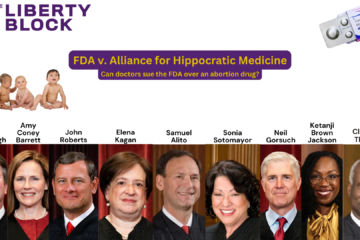A bill proposed by four Democrats and two Republicans would give the government (read: politicians and bureaucrats) another degree of control over restaurants. In addition to requiring business licenses for every business and the many other burdensome, unnecessary, and authoritarian regulations, politicians are hellbent on taking control of restaurants by utilizing the concept of ‘safety’ and ‘public health’, as they often do. If the government should have the authority to micromanage restaurants in the name of ‘the health of their customers’, maybe this bill doesn’t actually go far enough.

This delicious meal likely contains many allergens – and certainly contains lots of cholesterol, salt, and carbs. Don’t worry. It’ll soon be banned.
House Bill 1102 forces all “food service establishments to establish food allergy awareness procedures.” The bill explains that the new requirements would make it a crime for restaurant owners to neglect to:
“(a) Include on all menus and menu boards a notice to customers of the customer’s obligation to inform the server of his or her food allergies.
(b) Have a person in charge during all hours of operation trained and certified as a food protection manager by a program approved by the department which includes training regarding food allergens. Such person shall ensure that employees are properly informed of food safety issues, including awareness of food allergies, as it is related to the employees’ assigned duties.”
Violating this new law could result in “the suspension or revocation of a food service establishment license.”
Of course, following these new requirements would force – and I do mean force using the threat of violence – restaurant owners to change all of their menus. This includes their printed menus, their TV screens in the restaurant, and their online menus to reflect the new potential allergens, which may have to include every substance. This would cost time and money. And the rule of economics states that the more costly it is for a business to bring a product and/or service to the customer, the more expensive it becomes for the customer. Additionally, the bill would force entrepreneurs to train or hire an employee who would need to be certified by the government as a ‘food protection manager’. This person would also have to spend time training employees on allergies, which would cost the business more time and money. It is unclear which allergies the government is looking to force restaurant employees to learn about. It could be the common ones like peanuts and shellfish, it could be all allergies, and it could mean anything else the government decides. People can be allergic to anything. One thing is for sure, though: Your restaurant bill would increase substantially if HB1102 becomes law.
How do people currently survive the experience of eating out? Don’t many people actually enjoy eating out? How do they know which restaurants are good and which will kill them by way of allergies or other health risks?
Anyone with a brain understands that people – especially as consumers – are quite intelligent. They regularly learn about restaurants and all businesses using Google, Yelp, Facebook, other sites, and word of mouth before ever giving their money to a business. This affords people the ultimate freedom to choose where to spend their money, it holds businesses extremely accountable to their customers, and it keeps prices low and quality and customer service high. The authors of HB1102 believe that you are ignorant, Google doesn’t work, and that restaurant owners are trying to kill you (and here I thought that restaurants wanted repeat customers, not dead customers). If that is the case, their bill does not go far enough to protect individuals from themselves. Here is a proposal to make the bill more effective:
Being that heart disease is the #1 cause of death in the United States and in New Hampshire, and being that restaurant foods contribute significantly to heart disease, all food service establishments shall:
a) Include on all menus and menu boards a notice to customers of the customer’s obligation to inform the server of his or her diseases, illnesses, medications, and other injuries, conditions, and special dietary needs.
(b) Have a person in charge during all hours of operation trained and certified as a heart health manager’ by a program approved by the department which includes training regarding heart disease, hypertension, and health food choices. Such person shall ensure that employees are properly informed of food safety issues, including awareness of heart disease, as it is related to the employees’ assigned duties.”
c) All employees shall be trained in CPR and hold current AHA or equivalent CPR certifications.
d) All employees shall be trained and certified by the department to recognize the symptoms of a heart attack, stroke, and pulmonary embolism.
e) Include an AED on their property and train all employees in its use. In the event that a severe heart attack or other condition causes sudden cardiac arrest, rapid recognition, CPR, and use of an AED have been shown to dramatically increase the rate of survival.
f) No single meal offered by the establishment shall contain more than half of the FDA recommended daily allowance of sodium. As of 2019, the total daily recommended amount of sodium is 2,300mg.
While heart disease does not often kill restaurant patrons as quickly as severe allergies, it is so much more common and kills so many more people than any other disease, injury, or condition, that politicians who are consistent in their desire to ‘protect’ people from themselves should seriously consider adding the heart disease section to their new bill. If people should not have the freedom to choose what to put into their bodies and if entrepreneurs must be micromanaged by the government, this is the next logical step. Or politicians can simply ban cheeseburgers, alcohol, smoking, cholesterol, sugar, salt, and every other unhealthy substance that free people enjoy.


